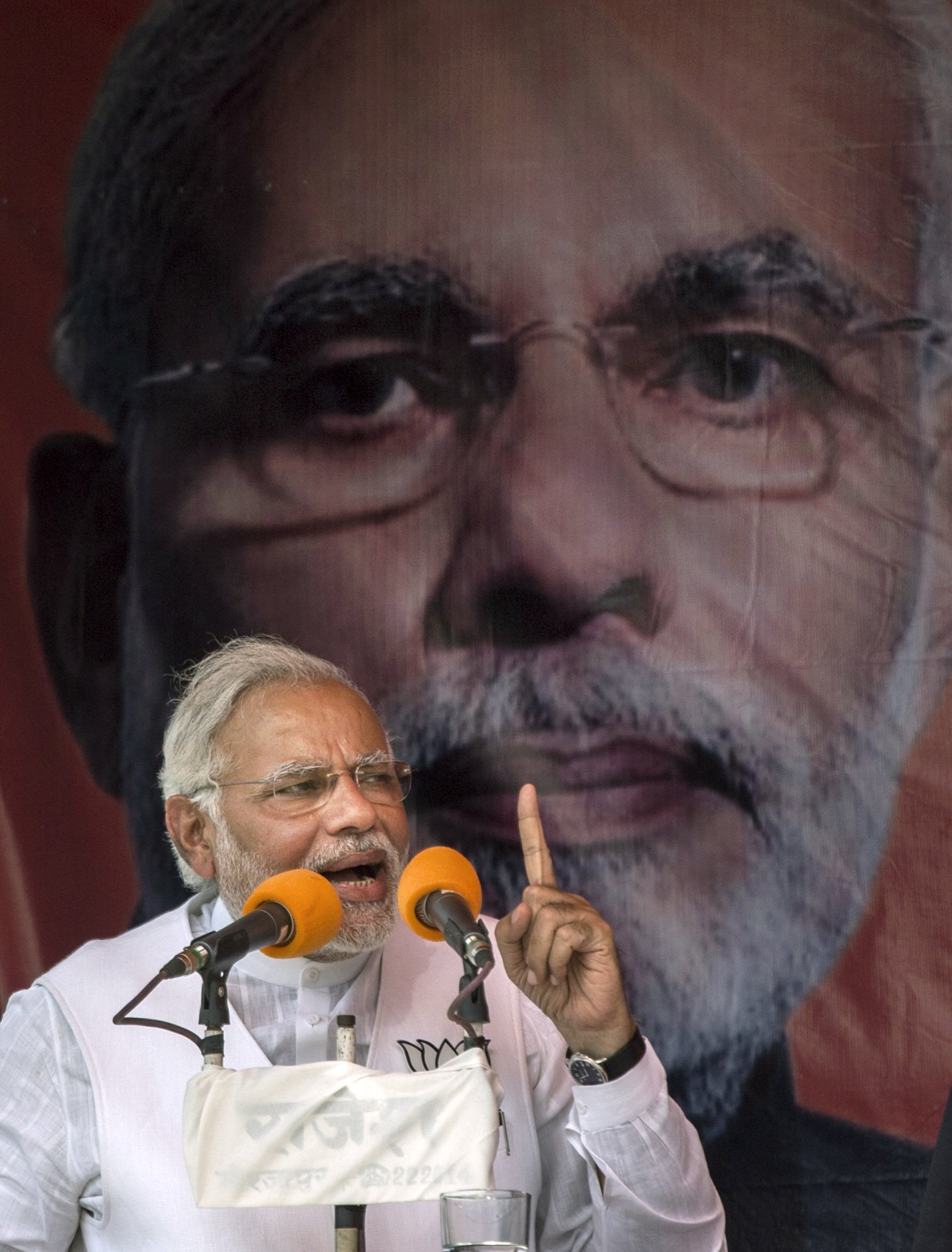
The city of Varanasi on Monday morning was no different from election day in other cities. Children played cricket on deserted streets, shops were closed. Too many political party volunteers rode pillion on single motorbikes crisscrossing the city, shouting out loud greetings to passersby. There was a strong presence of security forces (more than 45,000 were deployed across the city to watch over the voting).
Five weeks, nine phases and more than 800 million voters—if the Indian elections this year were a grand show then the Varanasi contest is undoubtedly its showstopper. Aware of this, the people of this town thronged polling booths. Later, they would proudly hold up the inked finger and shout out “de diya” (I have voted), before joining the impromptu assembly of friends and acquaintances in roadside stalls, serving fresh breakfast and tea.
“Election special,” Pappu Yadav, a tea stall owner, told TIME, beaming ear-to-ear at the increased business.
From 7 a.m.—when voting began—there were already snaking queues in booths across the city. In 2009, the average turn out was about 42% in Varanasi; this year, the turnout was 53% at 5 p.m. (voting was set to end at 6).
“I left the housework unfinished, didn’t drink my morning tea, abandoned my daily morning prayers to come out and vote,” said Narola Devi, standing outside the Nadesar polling booth, wearing one of her best saris that she reserves for special occasions.
Varanasi, it would seem, is taking the prods of the election commission—which had slapped posters all over the city urging people to first vote and then eat—very seriously.
“I am voting for Modi, I am voting for a better life,” Devi said.
While there are many like Devi who believe Narenda Modi is the magic wand Varanasi lacks, the word on the street Monday varied from voter to voter.
In Varanasi, a stronghold of Modi’s Bharatiya Janata Party and a seat of Hinduism, there is undoubtedly enough support for Modi. But many are also wary of his divisive politics and would rather opt for secular alternatives in Arvind Kejriwal or the Congress Party’s Ajay Rai, who, although not as much in news as his rivals, is a local man and enjoys much good will among Varanasi residents.
“If Modi is elected we fear that he will again raise the issue of Ram Mandir and that might create communal tensions,” said Bhola Majhi, a Hindu himself, rowing his boat to the other side of the Ganges river.
This same concern is perhaps what also prompted Muslim women—who traditionally shy away from voting—to come out to vote on Monday. “Each vote is crucial this year,” said Rabeya Bibi, peeking from under her hizaab and burqua. Mohammad Hussein Raju, a Muslim weaver, outside the polling booth in the predominantly Muslim Baribazaar area, said BJP workers avoid campaigning or visiting Muslim areas in Varanasi. “They know we won’t vote for them.”
“There is a Modi wave, but then there is a Kejriwal wave too and if numbers are anything to go by there is a Rahul Gandhi wave too as almost similar number of people drove out to these leaders’ road shows,” said Nathu Pal, a taxi driver. “We are very confused.”
On Sunday evening, 10 first-time voters met on the steps leading to the blue green waters of the Ganges, to assuage this very confusion. “We want to rise above the limitations of caste and religion,” said Golu Sahni, an 18-year-old first time voter. Sahni studies commerce in a local college and in his spare time is a tourist guide and a boatman. “Every one is taking these elections very seriously and no one will vote on a whim,” he said. “There are discussions everywhere.”
More Must-Reads from TIME
- Donald Trump Is TIME's 2024 Person of the Year
- Why We Chose Trump as Person of the Year
- Is Intermittent Fasting Good or Bad for You?
- The 100 Must-Read Books of 2024
- The 20 Best Christmas TV Episodes
- Column: If Optimism Feels Ridiculous Now, Try Hope
- The Future of Climate Action Is Trade Policy
- Merle Bombardieri Is Helping People Make the Baby Decision
Contact us at letters@time.com